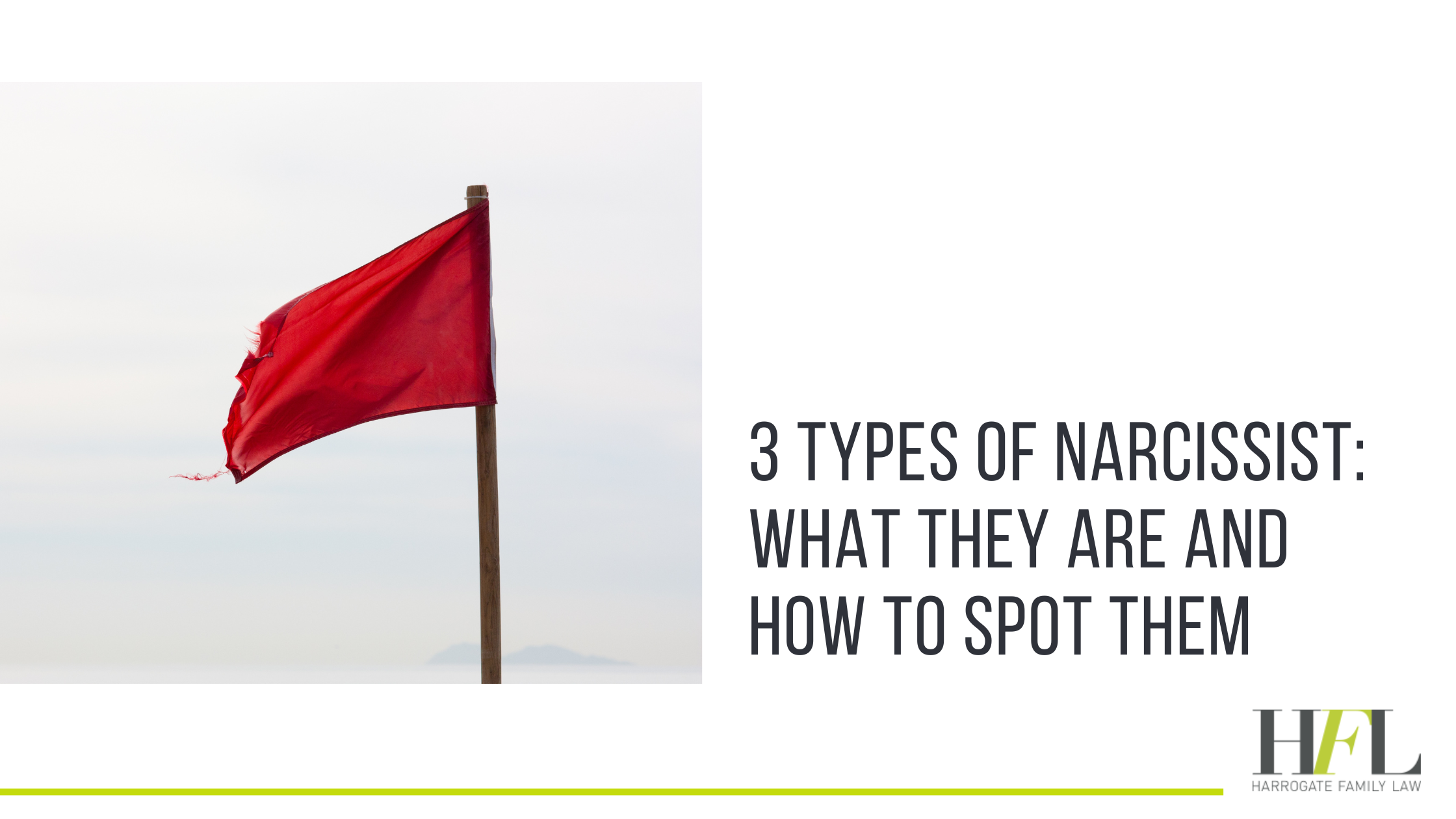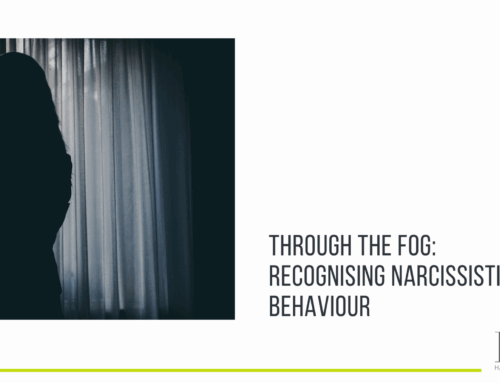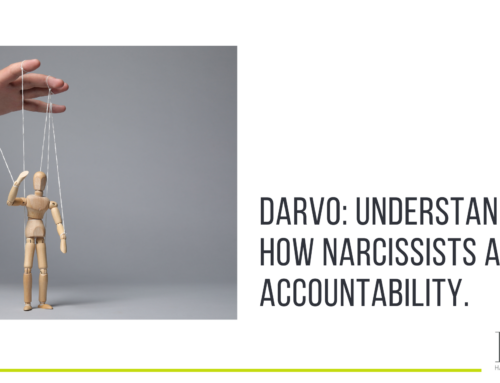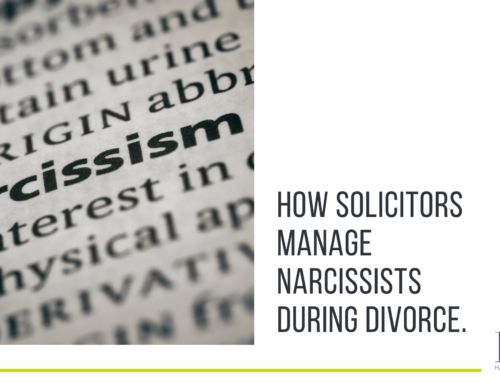At Harrogate Family Law, we specialise in supporting individuals divorcing or separating from narcissistic partners. The breakdown of any relationship can bring a whole host of difficult emotions, but dealing with a narcissist can make the whole thing more complicated.
The first step in navigating a separation or divorce from a narcissist is to recognise that that is the kind of person you’re dealing with. Depending on the type of narcissistic behaviours being shown, narcissism can be easier to spot or more difficult to. Here we’ll discuss the three types of narcissist and how to tell when the person you are (or have been) in a relationship with is one.
Grandiose narcissism
When most of us think of narcissism, it’s the grandiose form that comes straight to mind. Grandiose narcissists tend to have an inflated sense of self-importance and can be aggressive, assertive and outspoken.
In relationships, grandiose narcissism is often linked to behaviours such as controlling one’s partner’s actions, isolating them from others, and showing disdain or indifference towards their feelings. For example, they might try to control where their partner goes and with whom or have sole control over the couple’s finances because they believe that they know best, without concern for how their actions impacted their partner emotionally.
Vulnerable narcissism
Vulnerable narcissism is often more subtle than its grandiose counterpart, but can be just as difficult to deal with both during a relationship and throughout a separation. Rather than being overly confident and assertive, vulnerable narcissists often feel insecure and inadequate, and come across as anxious, defensive, bitter and emotional.
Like grandiose narcissism, vulnerable narcissism is linked to behaviours associated with psychological abuse. However, vulnerable narcissists are often less direct, using a high level of romantic jealousy to excuse their behaviour. A vulnerable narcissist might also want to control who their partner sees and where they go, but this comes from a place of insecurity and jealousy rather than grandiosity.
Narcissistic personality disorder
While grandiose and vulnerable narcissists can be unpleasant, abusive, and generally difficult to deal with, they’re not necessarily evidence of a ‘disorder’, just like you can be a generally anxious person without meeting the criteria for an anxiety disorder.
Narcissistic personality disorder is a clinical term used by professionals to categorise a certain collection of behaviours and attitudes. Of the two other forms of narcissism, it’s most similar to grandiose narcissism, to a level of severity that:
- Increases aggression towards oneself and others.
- Makes interpersonal relationships nearly impossible.
- Is difficult for clinicians to manage.
Because people with narcissistic personality disorder are often uninterested in forming relationships, it’s more likely that your narcissistic (ex) partner will fall under one of the first two categories.
Need support?
Dealing with a partner who shows any kind of narcissistic behaviour can be distressing, especially if you’re thinking of making the decision to separate or divorce. But you’re not alone.
With a wealth of experience with all kinds of narcissistic behaviour, Harrogate Family Law can provide the support you need to reach the best outcome for you and your future. Get in touch to find out how we can help.






